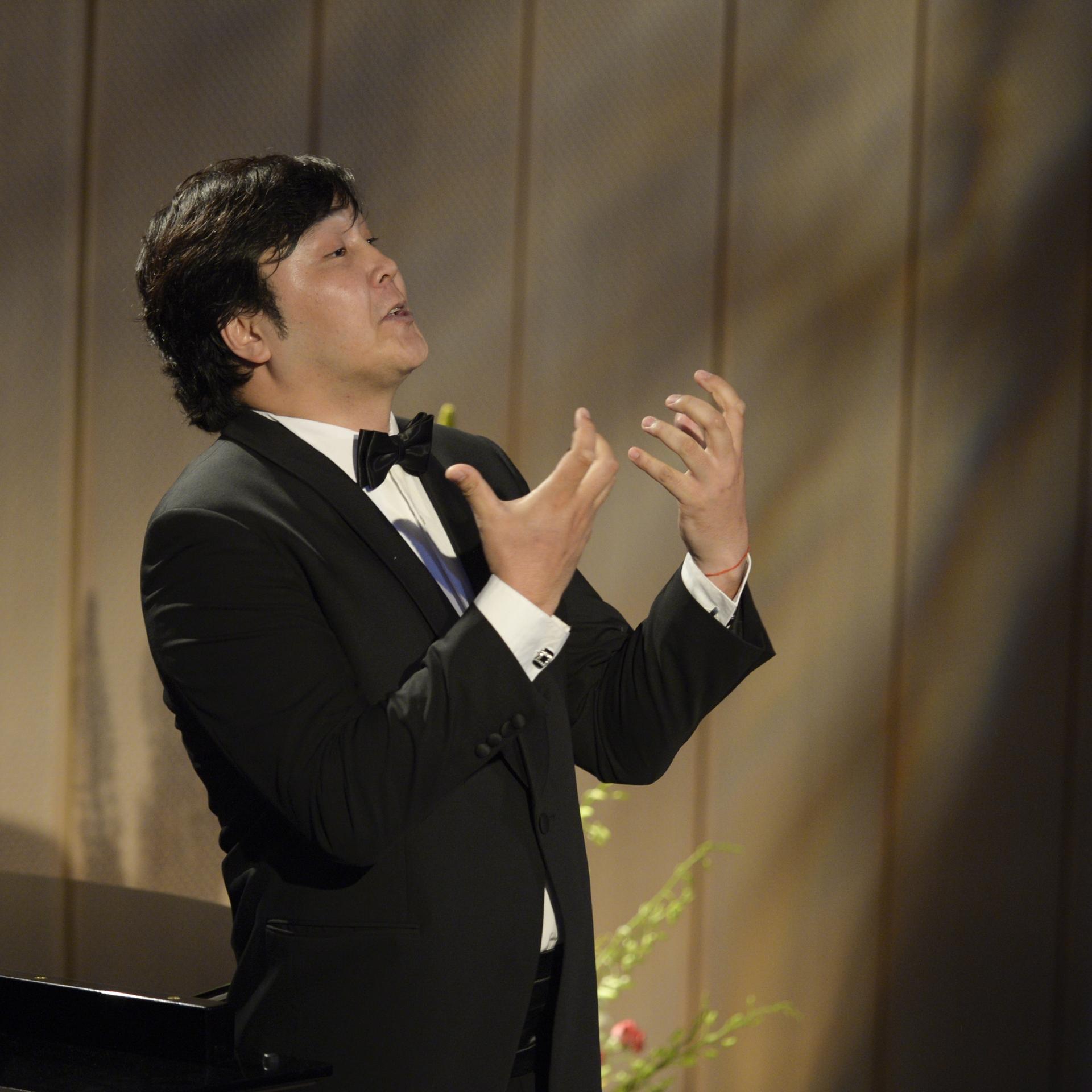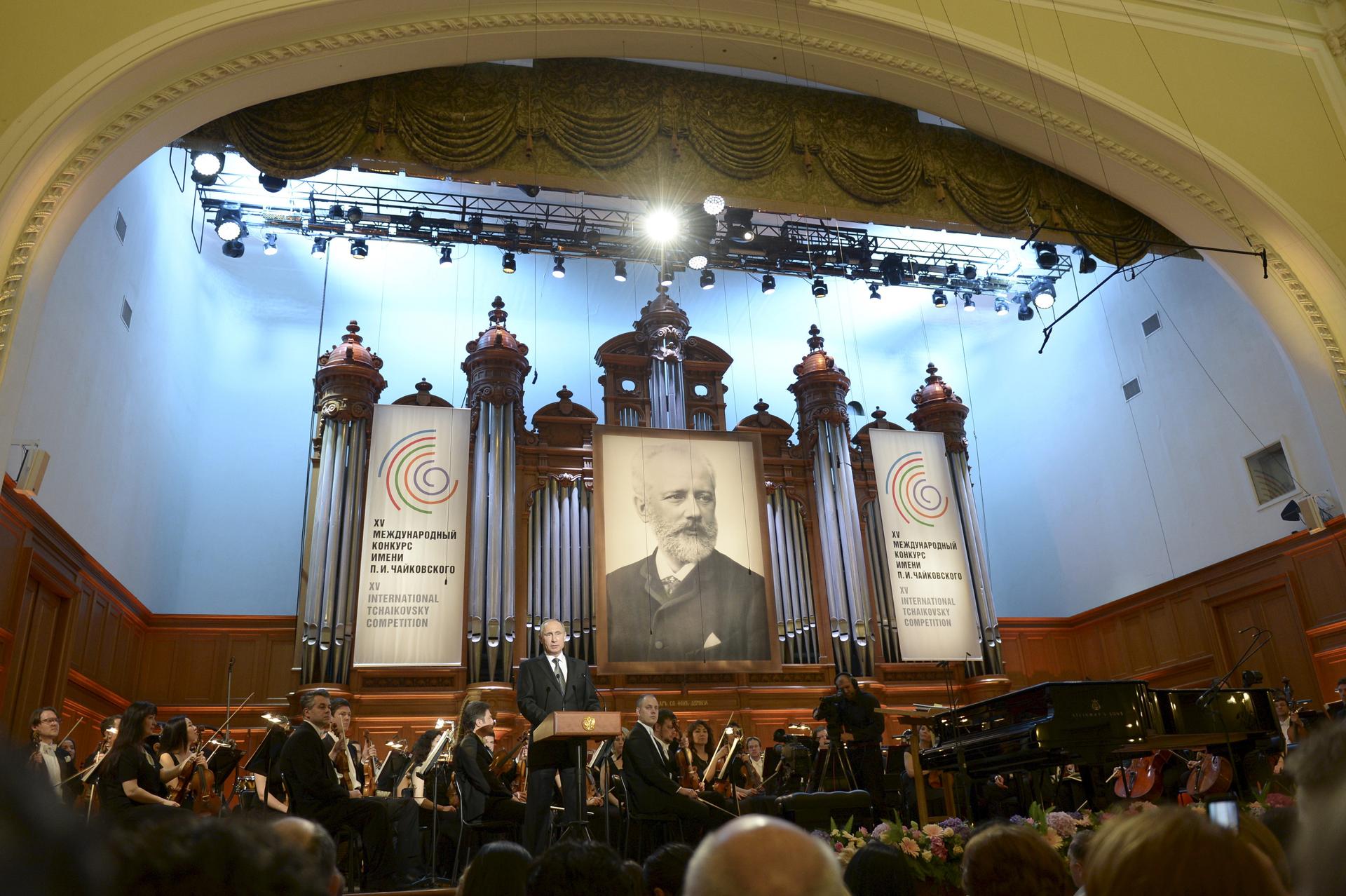The International Tchaikovsky Competition is stronger than ever, though it’s getting a bit less Russian
Vladimir Putin is dwarfed by a picture of Russian composer Pyotr Tchaikovsky at the gala concert of the 15th International Tchaikovsky Competition at the Moscow Conservatory on July 2nd. The Russian President addressed the crowd describing the competition as "Russia's pride". The competition is held every four years and was inaugurated in 1958 when American Van Cliburn earned the top prize.
The most significant news out of this year's International Tchaikovsky Competition may be the fact that it's getting a little less Russian. Top winners announced on Wednesday included a Russian pianist and a Russian singer, but also a Romanian cellist and a singer from Mongolia. No first prize was awarded in violin.
The competition happens over a period of several weeks and in three stages. The 26 who made it to the third and final round represented 13 countries. The winners received a gold medal and $30,000 each.
That's a big change from past competitions. "The Russian School, as they call it, is a whole way of thinking about how to train a young person, a child, and immerse them into the world of piano playing," says Cathy Fuller, classical music host at WCRB in Boston.
Fuller says the Russian contribution to classical music, especially piano, has been central to the cultural identity of the country. Russian President Vladimir Putin said as much in remarks made on Thursday at a gala concert featuring the winners of the 15th International Tchaikovsky Competition. "The Tchaikovsky Music Competition has always been and remains the pride of Russia and one of the most authoritative and recognizable contests in the world."
The competition was created by the Soviet Union in 1958, at the height of the Cold War. That year's winner was a stunner: American Van Cliburn. He instantly became a metaphorical olive branch. "He fell in love with the Russians. The Russians fell in love with him," Fuller says.

Since then the competition has gone through fits and starts. The Cold War ended, the Soviet Union dissolved and Russian cultural institutions had to adjust.
Fuller says the judges used to be overwhelmingly Russian. There were charges of favoritism. Several years ago, the competition hired Richard Rodzinski, formerly of the Van Cliburn competition in Texas, as general manager. Fuller says Rodzinski's mission was to rehabilitate classical music's most prestigious talent contest back to its former stature.
Rodzinski set up a new voting system to ensure more fairness and transparency. "He also decided they shouldn't use piano teachers [as judges] because there were a lot of rumors and problems with teachers bending the rules perhaps," like favoring their own students, Fuller says.
According to Fuller, Rodzinski decided judges shouldn't be teachers but accomplished musicians who will make "good decisions about young people who will go on to communicate great messages." This year, five out of the 12 judges were Russian.
What may be more remarkable about this year's International Tchaikovsky Competition is the interest it generated around the globe. Besides the crowds at the live peformances, the webcast produced by classical music digital channel medici.tv received more than 6 million worldwide views — all before the competition had even finished. The average time per visit was 90 minutes and nearly 50 percent viewed it live as opposed to on demand.
Vladimir Putin noted the interest in his remarks at the gala concert on Thursday. He attributed it to the "evidence of the deep spiritual need millions upon millions of people have."
